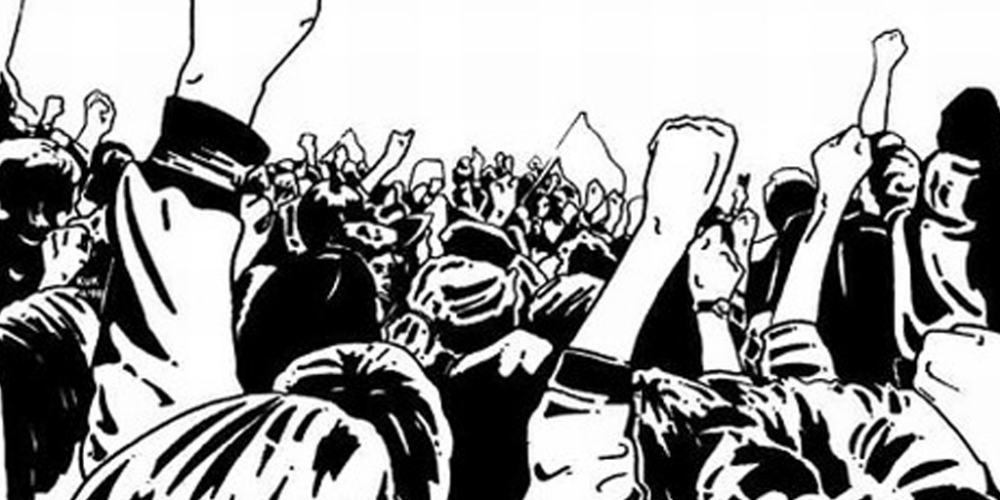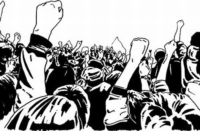An interesting but not entirely new debate has begun in Socialist Voice in recent issues on the question of “social partnership” and national wage agreements.
On the one hand, Jimmy Doran has condemned “social partnership” outright as class betrayal, with strong statements that it is anti-democratic, embodies insider dealing, reduces workers’ demands, produced wage moderation, deliberately demobilises workers, and has led to a decline in strikes, a decline in union density, and the Industrial Relations Act (1990), which is said to have stripped all power from workers and unions. As he says, “social partnership has devastated the trade union movement.”
In response, and contrast, to this, Niall Cullinane wrote in June another view on national wage agreements and the related “social partnership,” arguing that all the ills of the movement cannot and should not be laid at the feet of partnership and instead suggesting that unions change their tactics and demands to combine national bargaining on wages with local “job control” issues, and that than trade tax cuts instead to seek better job protections and collective rights.
I think if one strips aside Jimmy’s polemics the core point being made is that partnership removes the attention of unions away from the work-place and places its focus, more often than not, on secretive pay negotiations so distant from workers as to have a negative impact on organising, participation and union activity at the work-place level.
And the central response from Niall is that this doesn’t necessarily have to be the way and is more a result of weak (in this case) union power and tactics than national bargaining itself.
This leads us to the crucial questions of what are we fighting for and what do we see as the main purpose of the trade union movement. Are we, the trade union movement, about market interests or political class? If one sees its function in the narrow sense of just improving pay and conditions, a market actor, that will lead one to certain strategic and tactical decisions. However, if one sees it as an instrument of power for the working class for increasing class-consciousness and militancy in the struggle to overthrow capitalism, then one will take a different approach to these issues.
This is not a new debate and has been at the core of internal struggle in the movement for more than a century, with different positions more or less dominant at different junctures. And I am also not saying that Jimmy or Niall sit strictly in one or other camp only: both articles contain elements of both market and class positions, because the reality is that the trade union movement is both at the same time, without ever being settled.
The most important point to take away from Niall’s article is that “the problem with social partnership in the Irish context is that union engagement derives from a position of structural weakness…” This mistake must be avoided by the movement at all costs, otherwise we will see history repeat itself and the negatives outlined by Jimmy exacerbated.
As difficult as this is, the trade union movement, right now at this historical juncture in this balance of class power, must focus its energy and resources on rebuilding unions structurally at the work-place level and organising new sectors and workers into the movement. That is the immediate task that confronts us. Removing pay bargaining from this site of struggle and mobilisation will hinder, not assist, strengthening and building unions back up.
Therefore, national wage agreements or partnership should be avoided at all costs. Individual unions should concentrate on building and strengthening themselves and militantly pursuing big pay claims. The national movement should concentrate on winning legislation that makes it easier for affiliate unions to organise and win significantly in work-places and sectors. This should be our focus now.






